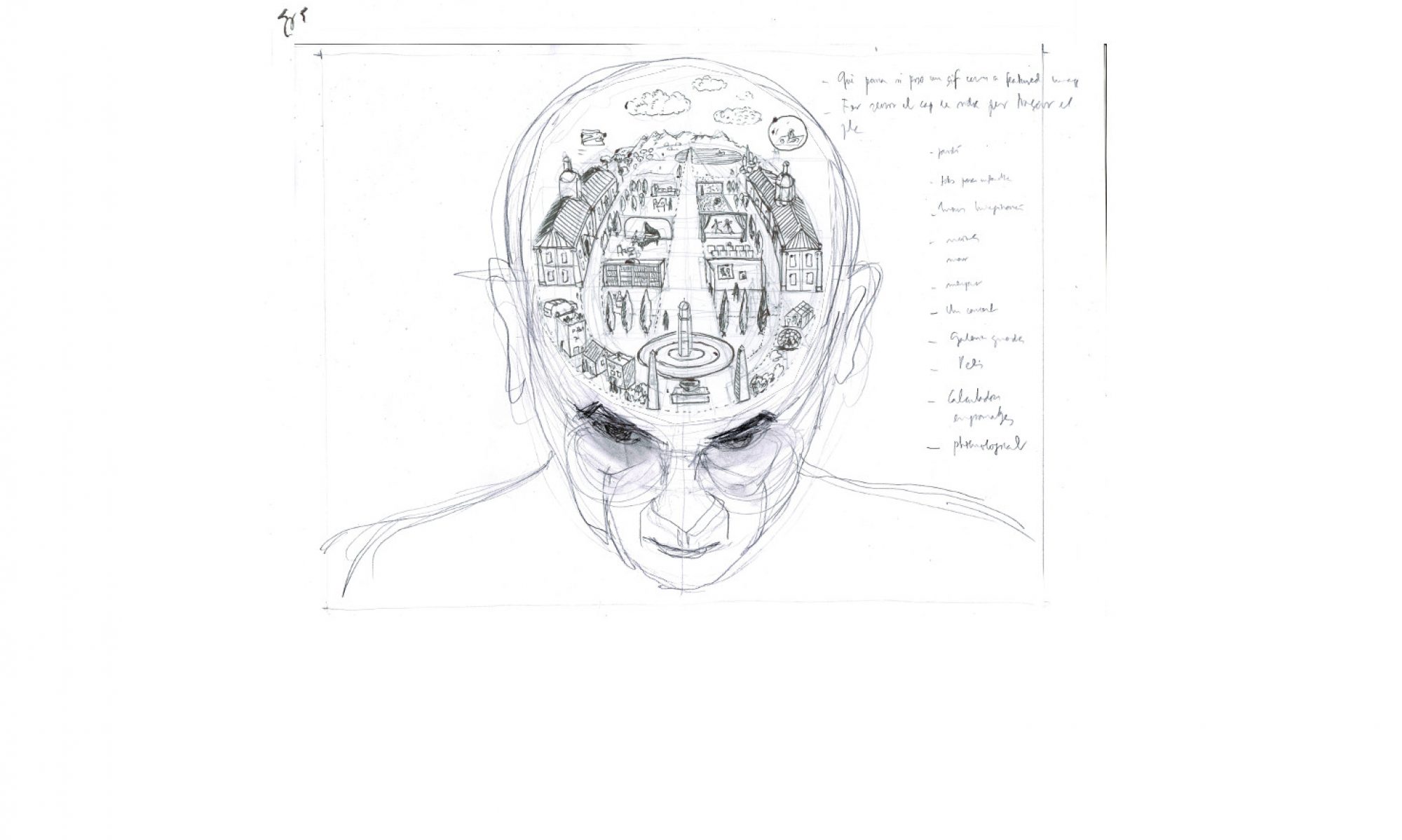Cosmic synchronization
But then, in a sense, all poetry is positional: to try to express one’s position in regard to the universe embraced by consciousness, is an immemorial urge. The arms of consciousness reach out and grope, and the longer they are the better. Tentacles, not wings, are Apollo’s natural members. Vivian Bloodmark, a philosophical friend of mine, in later years, used to say that while the scientist sees everything that happens in one point of space, the poet feels everything that happens in one point of time. Lost in thought, he taps his knee with his wandlike pencil, and at the same instant a car (New York license plate) passes along the road, a child bangs the screen door of a neighboring porch, an old man yawns in a misty Turkestan orchard, a granule of cinder-gray sand is rolled by the wind on Venus, a Docteur Jacques Hirsch in Grenoble puts on his reading glasses, and trillions of other such trifles occur—all forming an instantaneous and transparent organism of events, of which the poet (sitting in a lawn chair, at Ithaca, N.Y.) is the nucleus.
That summer I was still far too young to evolve any wealth of “cosmic synchronization” (to quote my philosopher again). But I did discover, at least, that a person hoping to become a poet must have the capacity of thinking of several things at a time. In the course of the languid rambles that accompanied the making of my first poem, I ran into the village schoolmaster, an ardent Socialist, a good man, intensely devoted to my father (I welcome this image again), always with a tight posy of wild flowers, always smiling, always perspiring. While politely discussing with him my father’s sudden journey to town, I registered simultaneously and with equal clarity not only his wilting flowers, his flowing tie and the blackheads on the fleshy volutes of his nostrils, but also the dull little voice of a cuckoo coming from afar, and the flash of a Queen of Spain settling on the road, and the remembered impression of the pictures (enlarged agricultural pests and bearded Russian writers) in the well-aerated classrooms of the village school which I had once or twice visited; and—to continue a tabulation that hardly does justice to the ethereal simplicity of the whole process—the throb of some utterly irrelevant recollection (a pedometer I had lost) was released from a neighboring brain cell, and the savor of the grass stalk I was chewing mingled with the cuckoo’s note and the fritillary’s takeoff, and all the while I was richly, serenely aware of my own manifold awareness.
